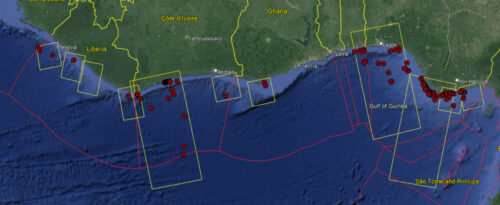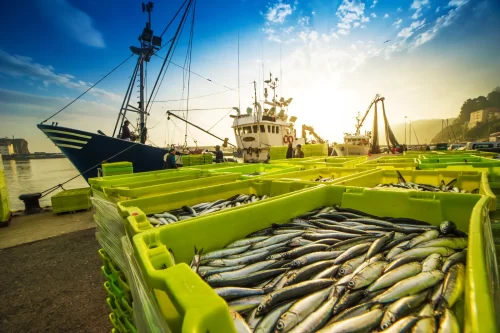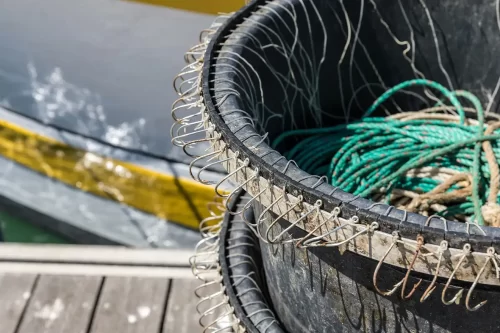Global Fishing Watch partners with the Food and Agriculture Organization of the United Nations in Decade of Ocean Science to bring digital innovation to fisheries monitoring
Commercial fishing is vital to the food security, livelihoods and cultural identity of millions of people around the world. But the fish that sustain this industry freely swim across national boundaries, making it difficult for governments to manage this shared resource.
Reliable information on fish populations and fishing activity is often hard to find. About half of commercial fish stocks lack a scientific assessment, and only a small percent of fishing vessels publicly broadcast their GPS positions to make their activity known. It is estimated that one-third of stocks are overfished, and while many well-studied stocks have recovered, the global rate of overfishing has been increasing over time. Stronger governance could not only make fish more abundant but increase profits of fishers by tens of billions of dollars.
To help achieve a more prosperous and abundant ocean, the United Nations has proclaimed the next ten years as the Decade of Ocean Science for Sustainable Development (the Decade). The effective management of fisheries is one of the key objectives highlighted in this initiative. In support of the Decade, Global Fishing Watch is partnering with the Food and Agriculture Organization of the United Nations (FAO) to support its endorsed decade action, “Digital innovation hand-in-hand with fisheries and ecosystems scientific monitoring.”
Our work with FAO will build on our previous collaborations, which include publication of the Global Atlas of AIS-based Fishing Activity. Released in 2019, the atlas analyzed our fishing effort data for each FAO statistical region, identifying the strengths and weaknesses of our AIS data when it came to distinguishing fishing activity. One area of improvement, more so in coastal regions of developing countries, was the small number of vessels broadcasting their GPS positions—this gap in coverage meant our fishing effort map had insufficient data. In other words, our global atlas had big missing regions.
To fill in this gap, we turned to new technologies and satellites. We are now drawing on global feeds of satellite radar and optical imagery to detect vessels directly. By fusing together different sources of data, including our original AIS data, we are able to estimate the true presence of fishing activity. We have recently used this analysis technique to identify widespread illegal, unreported and unregulated fishing that fuels overfishing and contravenes sanctions of the United Nations Security Council.
On a global scale, our first efforts have been focused on radar imagery from Sentinel-1, a European Space Agency satellite constellation that takes pictures of coastal regions of the world. We process the imagery using Google Earth Engine and use it to identify vessels. This information can help us pinpoint fishing vessels that are not broadcasting their GPS positions, and could therefore be useful to governments around the world in their efforts to monitor, control and survey fishing vessels and fisheries.
Transparency of information can improve ocean governance by shining a light on human activity at sea. Scientific research, promoted by the Decade of Ocean Science, will support the development of new technologies that can help reveal hotspots of untracked fishing activity. Digital innovation will present cost-effective solutions to many issues facing our ocean, but data must be transparent and accessible to all to achieve the aims of this pivotal decade.
Governments can join those leading the way in transparency by sharing their vessel registration and tracking data. Making this information publicly accessible can accelerate ocean science, help drive fairer, smarter policies that protect fisheries and those whose livelihoods depend on them, and ensure all stakeholders have equitable access to ocean data.
David Kroodsma is the director of research and innovation at Global Fishing Watch. Courtney Farthing is the manager of international affairs at Global Fishing Watch.


